What if Michael Jordan and Scottie Pippen could’ve played alongside prime Derrick Rose? How many titles would the Celtics have won if Larry Bird and Bill Russell were on the same team? Imagine LeBron James taking his talents to South Beach to team up not only with Dwyane Wade, but Tim Hardaway and Alonzo Mourning too.
We asked our NBA writers to come up with an all-time starting five for every current NBA franchise, along with one additional blast from the past. Only a player’s contributions during his time with that franchise were considered (so, no, Jordan isn’t on the Wizards’ list).
In this era of “positionless” basketball, traditional positions don’t matter quite as much as they used to, so we allowed some flexibility in choosing a lineup — but you won’t see teams with four centers or three point guards. The idea was to dive into each team’s history and create a group that could at least potentially share the floor together.
Over the next two days, we’ll roll out the lineups, starting with the Eastern Conference.


G: Lou Hudson
G: Cliff Hagan
F: Dominique Wilkins
F: Bob Pettit
C: Al Horford
Because we are including Atlanta’s prior history in St. Louis, this was one of the most straightforward lists in the league. Hudson was a six-time All-Star who averaged over 20 points per game seven times. Hagan was a 6-foot-4 forward in his era who, for the purposes of this list, is going to play as a guard.
The forward spots provide plenty of scoring. Wilkins is the franchise’s leader in points, and both he and Pettit averaged 26.4 points per game for their Hawks careers. Pettit also chipped in 16 rebounds per game, and he paired with Hagan on one of the two teams that were able to prevent Bill Russell from winning a championship during his career.
Horford made four All-Star teams during his nine years with the Hawks, and his versatility helped Atlanta return to respectability.
— Tim Bontemps

G: Bob Cousy
G: John Havlicek
F: Paul Pierce
F: Larry Bird
C: Bill Russell
With the depth and breadth of history the Celtics have accrued over the past 70-plus seasons, there are plenty of candidates to be in their all-time starting five. That said, coming up with this list was simpler than expected.
The backcourt is led by Cousy, the NBA’s original great guard who made 12 All-NBA teams and won six championships. He’s joined by Havlicek, a Swiss Army knife in human form who fits perfectly on this team as its shooting guard. The frontcourt has two equally obvious choices: Russell, the greatest winner in the history of the sport, and Bird, a three-time MVP.
The one difficult decision was at the remaining spot, where there were two deserving choices: Kevin McHale and Pierce. In the end, Pierce’s Finals MVP helps him earn the nod.
— Bontemps

G: Jason Kidd
G: Vince Carter
F: Julius Erving
F: Buck Williams
C: Brook Lopez
Kidd, Erving, Williams and Lopez are four of the top five in career win shares for the Nets. Lopez is also the franchise’s leading scorer, having edged Williams by four points in his final game with the team.
Carter might not have been able to get the Nets to the Finals during his tenure, but he does have the third-highest scoring average in team history, behind Rick Barry (who played two seasons with the ABA’s Nets) and Erving. Selecting Carter over Drazen Petrovic was the toughest call. Petrovic — one of only six players in the team’s history whose number is retired — was on his way to joining the NBA’s elite before dying in a car accident at 28.
— Malika Andrews
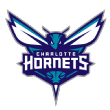
G: Kemba Walker
G: Dell Curry
F: Glen Rice
F: Larry Johnson
C: Alonzo Mourning
(NOTE: The NBA considers the original Charlotte Hornets and the renamed Hornets — formerly the Charlotte Bobcats — to be one franchise.)
In 1992, Charlotte’s expansion franchise had a healthy Larry Johnson — the Hornets’ first All-Star — and rookie Mourning, who sunk Boston with a series-clinching game winner to give the Hornets their first playoff series victory in 1993.
But Johnson’s back injury and some internal drama eventually led Charlotte’s star tandem to break up and later become heated rivals during the Knicks-Heat battles. Charlotte has won 50 or more games only three times. But Rice, whom the Hornets got from Miami in the Mourning trade, was the best player on the teams that won 50 games in back-to-back seasons, averaging 26.8 points in 1996-97.
As sweet a marksman as Rice was, Curry is the franchise’s greatest shooter. He and Muggsy Bogues played a significant role in starting the franchise as expansion draft picks, and Curry averaged double figures in points in nine of his 10 seasons in Charlotte.
Walker may now be in Boston, but he left Charlotte as the franchise’s all-time leading scorer and a three-time All-Star.
— Ohm Youngmisuk
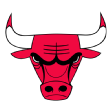
G: Derrick Rose
G: Michael Jordan
F: Scottie Pippen
F: Dennis Rodman
C: Artis Gilmore
Jordan and Pippen led the Bulls to six NBA titles, with rebounding machine Rodman joining the legendary duo for the second three-peat.
Gilmore was a four-time All-Star during his Chicago tenure, with an all-league Afro to match his 7-2 frame.
Rose is Chi-Town’s own. Born and raised in the Englewood area on Chicago’s South Side, the shy kid became the youngest MVP in NBA history at 22 years old. Both Jordan and Rose were elite athletes with a cult following to match their rare skill set and would be electrifying to watch in a Windy City backcourt.
— Eric Woodyard

G: Mark Price
G: Kyrie Irving
F: LeBron James
F: Larry Nance
C: Brad Daugherty
You start with James, the greatest player in franchise history and the recipient of the Finals MVP the one and only time the Cavaliers won the championship. You add Irving, who joined him in winning the title by hitting the greatest shot in franchise history in the final minute of Game 7 of the 2016 Finals. Now you look for roster balance.
Price shot 40.9% from 3 during his Cavs career with 7.2 assists per game, and Nance was a high-flying, shot-blocking menace. Price, Nance and Brad Daugherty might have made more noise in the postseason if they didn’t play in the Michael Jordan era.
Center was a tough choice. Tristan Thompson has played his entire career in Cleveland and won a chip, and two-time All-Star Zydrunas Ilgauskas is the franchise leader in blocks. Daugherty, a five-time All-Star, gets the nod for his combination of skill level and mobility for a big man.
— Dave McMenamin
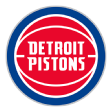
G: Isiah Thomas
G: Joe Dumars
F: Grant Hill
F: Ben Wallace
C: Bob Lanier
Rarely are sports teams able to take on the identity of a city, but when the Pistons are at their best, they’re a reflection of Detroit’s gritty reputation.
Thomas and Dumars were the star backcourt of the Bad Boys squads that won titles in 1989 and 1990. “Big Ben” Wallace was the defensive leader during the “Deee-troit Basketball” era, when the Pistons ended the Shaq/Kobe Lakers era in the 2004 Finals. All of those guys were stars in their own right, with a plethora of talent around them to play team basketball.
Hill might not have been a fan favorite in Detroit after he left for Orlando, but there was no denying his superstar status while in a Pistons uniform. He put up 9,393 points, 3,417 boards and 2,720 assists in his first six seasons, a feat matched only by Larry Bird and Oscar Robertson.
— Woodyard

G: Freddie Lewis
G: Reggie Miller
F: Roger Brown
F: George McGinnis
C: Mel Daniels
ABA fans will be thrilled to see this Pacers team, with four of the five selections coming from the ABA edition of the franchise, which won three championships and featured several Hall of Famers. Three of them — Brown, McGinnis and Daniels — form Indiana’s frontcourt.
Lewis edged out Paul George for the second spot in Indiana’s backcourt. That was the toughest decision to make, but Lewis — who was the ABA playoffs MVP in 1972, made three All-Star teams and was a key member of all three title teams — did enough to edge out George.
The “other” player on the list is only the greatest player in franchise history: Reggie Miller. Not much thought was needed for that one.
— Bontemps
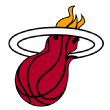
G: Tim Hardaway
G: Dwyane Wade
F: LeBron James
F: Alonzo Mourning
C: Shaquille O’Neal
Pat Riley built today’s Heat culture on Mourning’s intensity and strength and Hardaway’s grit and talent. The duo led Miami to five consecutive postseasons, including the 1997 Eastern Conference finals.
In 2003, Riley drafted Wade, the best and most important player in franchise history. He and O’Neal — who arrived in Miami a year after Wade — delivered the franchise’s first title. Wade, a 13-time All-Star, then helped amass Miami’s superteam with LeBron James and Chris Bosh.
James arrived in South Beach with enormous expectations and his tenure lasted just four seasons. But his Heat legacy is cemented by four consecutive NBA Finals trips, with back-to-back titles in 2012 and 2013, lifting the franchise to another level.
— Youngmisuk

G: Oscar Robertson
G: Sidney Moncrief
G: Ray Allen
F: Giannis Antetokounmpo
C: Kareem Abdul-Jabbar
The golden era of the Bucks franchise took place in the early 1970s with Abdul-Jabbar and Robertson running the show. Milwaukee hasn’t won a title since that 66-win, 1970-71 squad brought one back to town. Now, there’s a new era underway with Antetokounmpo, the reigning MVP, leading the team back to relevance. Those three picks were no-brainers.
Moncrief (in the 1980s) and Allen (in the ’90s and 2000s) were perennial All-Stars who led their respective teams deep into the playoffs. Although Marques Johnson hasn’t reached the Hall of Fame, it was tough leaving him out of this lineup, but a tough decision had to be made.
— Woodyard
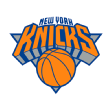
G: Walt Frazier
G: Earl Monroe
F: Carmelo Anthony
F: Willis Reed
C: Patrick Ewing
The only position that is really up for debate here is Anthony at small forward. During his time in the Empire State, Anthony averaged 24.7 points and 7.0 rebounds per game, so he gets the nod.
As for the locks, Frazier was one of the best at his position, earning six All-NBA nods and seven first-team All-Defense selections. Monroe changed his game to fit Frazier after coming over from Baltimore and helped the Knicks earn their second title in 1973.
Reed will forever be remembered for his gutty Game 7 performance in the 1970 Finals and remains the only Knick to win league MVP honors. And although Ewing is remembered for having never won a championship, he put a team on his back, was selected to 11 All-Star teams and was a member of the Olympic Dream Team.
— Andrews
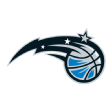
G: Anfernee Hardaway
G: Nick Anderson
F: Tracy McGrady
F: Dwight Howard
C: Shaquille O’Neal
This team can do it on both ends. Good luck trying to score inside against O’Neal and Howard. Both McGrady and O’Neal won scoring titles in a Magic uniform, giving this team offensive firepower. Jameer Nelson is the longest-tenured point guard in team history, but Hardaway played at a different level when he was healthy. People forget just how talented he was both during and after the Shaq era, before the injuries piled up.
As for the final spot, Vince Carter had a few nice years in Orlando, but Anderson is the pick here. His career is defined by those missed free throws in the ’95 Finals, but it shouldn’t be. Longtime Magic fans remember him as a great defender and a player who hit some huge clutch shots over the years. He belongs on this list.
— Nick Friedell

G: Allen Iverson
G: Hal Greer
F: Julius Erving
F: Charles Barkley
C: Wilt Chamberlain
Few teams will have a set of names more star-studded than this one. Each player made at least 10 All-Star teams. Four of them won MVP awards, and three of them won championships.
The backcourt features Iverson — because, really, how could it not? — and Greer, who made seven All-NBA teams and was one of the best guards in the 1960s. The forwards? Well, those were easy: Erving, who inspired a generation of players with his high-flying abilities, helped the Sixers win their last title in 1983; and Barkley was a dominant force for the Sixers in the late 1980s and early ’90s before being traded to Phoenix.
Moses Malone was the league MVP during the ’83 championship season, and Dolph Schayes had a long, impressive career with the Syracuse Nationals. But who else could play center on this team but Wilt?
— Bontemps

G: Kyle Lowry
G: DeMar DeRozan
G: Vince Carter
F: Kawhi Leonard
C: Chris Bosh
Lowry is the greatest player in the history of the franchise, having both resurrected it and his career after being traded to Toronto in 2012. DeRozan is Toronto’s all-time leading scorer and is beloved by the team’s fan base.
For a long time, Carter was reviled in Toronto for how he left the franchise in 2004. But there’s no question that he had an indelible impact on the Raptors. Leonard’s championship exploits in his lone season with the franchise were enough to merit his inclusion on this list. Before long, he’ll be passed by Pascal Siakam, but that day hasn’t arrived yet.
Bosh played seven years in Toronto, with five consecutive All-Star berths. His production with the Raptors is unquestioned, and there isn’t anyone who could come close to pushing him for this spot.
— Bontemps

G: John Wall
G: Earl Monroe
F: Gus Johnson
F: Elvin Hayes
C: Wes Unseld
Hayes and Unseld are the greatest Bullets, a Hall of Fame frontcourt combo that reached three NBA Finals, delivering D.C. its lone championship in 1978.
Johnson was one of the first power forwards to play above the rim. And while Monroe is often thought of as a Knick, “The Pearl” spent his first four seasons with the Baltimore Bullets, dazzling fans and opponents with his playground moves and posting averages of 24.3, 25.8, 23.4 and 21.4 points per game. Monroe, Unseld and Johnson led the Bullets to their first Finals appearance in 1971.
Bradley Beal is emerging into a force, a healthy Phil Chenier was one of the franchise’s best and Gilbert Arenas brought fireworks (good and bad) to D.C. But Wall has been a Wizard for a decade and is the team’s all-time assists and steals leader.
— Youngmisuk